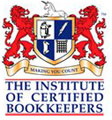
There are two main options when you decide how to keep your accounting records, do it yourself (“DIY”) or employ a bookkeeper. I would always recommend the latter – the tax rules, guidelines around allowances, exemptions, disqualifications, etc., are a minefield and can create significant cost, both for any rework and potential penalties, and waste time in the long run if you get them wrong.
But if you have no choice and have to go down the DIY route, then I hope the following thoughts may help.
Keep your personal and business finances separate
If you run a limited company, the business’s money is not your own – even if you own it 100%. As a director you can’t spend the company’s money on your own purchases, unless they are a legitimate business expense.
As a self-employed person you take drawings from your business, but you should still maintain a separate bank account – keep your business and personal finances separate.
Put time aside to do your bookkeeping regularly
When you are starting out it’s tempting to leave your bookkeeping until the evenings. But if you’re tired, simple tasks will take longer and you’re more likely to make mistakes. Establish a routine, perhaps even put some time in the diary every week to update your records regularly. You may well find that using a suitable accounts software package takes much of the pain away.
Get an invoice or receipt for everything you buy
Get used to keeping a piece of paper for every transaction. If you buy something online, print off the invoice. It’s easier to collect paper as you go along, rather than try to find it months, or even years, down the line.
Employees should attach copies of their receipts to their expenses claims. Be thorough and create the right culture within your business.
You should keep all records for at least 6 years as you never know when you may need to refer back to them and you may have to produce them for the authorities. With all your paperwork to hand, there will be less to fear if you are selected for a VAT or tax investigation.
There are numerous Apps that can help with the processing and storing of invoices and receipts, and I would always recommend, where possible, to use digital solutions.
Keep sales and purchase invoices separate
If you use an accounting package, you can use them to issue and store invoices. If you do them manually, make sure you retain a hard copy for your records. Store invoices in chronological order. To assist your credit control, keep invoices that are still outstanding at the front of the file.
Make notes on purchase invoices about when you paid them and how (BACS, cheque, cash, etc.). File them in chronological order. This will make your life easier and help when year-end accounts are being produced.
Keep up to date and on top of things
Raise sales invoices as soon as possible and ideally as soon as the goods or services have been dispatched or provided. Discrepancies will be noticed much sooner.
Reconcile your Bank statement at least monthly
You should spend time checking your bank statement every month. Apart from combating the risk of fraud, or a mistake by your bank, you will gain a better understanding of where you are spending money.
Successful businesses have great credit control and spend money smartly – make this a habit from day one.
Petty cash receipts are important
Each time you dip into petty cash, you must make some sort of record in order to keep track of the amount being spent. In the same way you reconcile your bank statement, reconcile your petty cash account regularly. You can then spot any inconsistencies and know where your money has been going and reduce the risk of theft.
Hire a professional and invest your time on growing your business
If you are struggling to keep up-to-date with paperwork, consider hiring a bookkeeper to get your books in order on a regular basis. Not only will they reduce your accountancy bill, but they will potentially help you earn more money.

